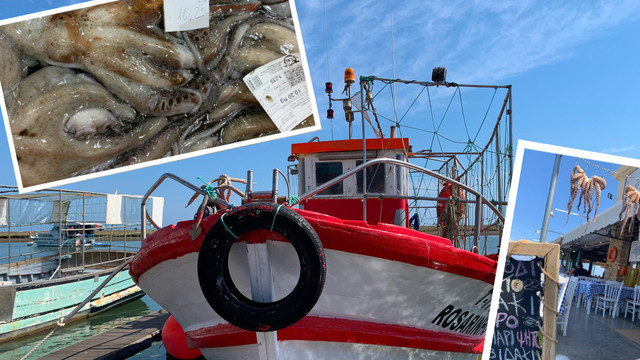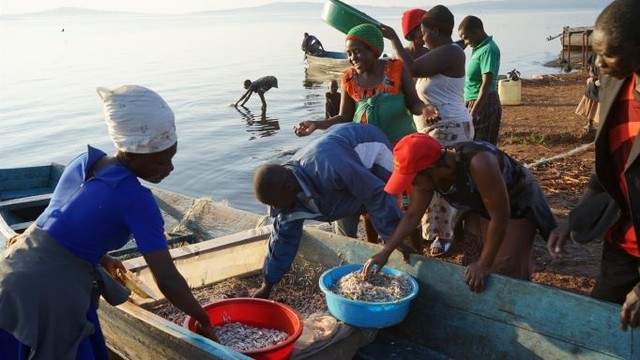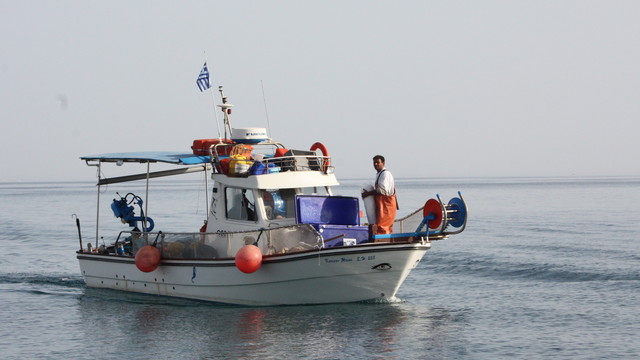Q&A: Revealing the value of small-scale fishing to national economies
There are millions of small-scale fisheries around the world, providing food and livelihoods for families and local communities, yet they go unnoticed by sector statistics, which focus on the overall contribution of the fishing industry to the national economy. As a result, they receive minimal attention from policymakers and consequently, minimal investment — if any.
 Ina Porras is a senior researcher in the Shaping Sustainable Markets research group and part of the ocean and fisheries economics programme. In this Q&A she discusses her work to explore how natural capital accounting could be the way to raise awareness of small-scale fisheries’ contribution to thriving economies and livelihoods.
Ina Porras is a senior researcher in the Shaping Sustainable Markets research group and part of the ocean and fisheries economics programme. In this Q&A she discusses her work to explore how natural capital accounting could be the way to raise awareness of small-scale fisheries’ contribution to thriving economies and livelihoods.
What is fisheries accounting? How does it work?
IP: Countries use the National Accounts System to calculate their annual economic performance. One of the indicators of this system is gross domestic product (GDP). To a degree, goods and services provided by fisheries are included in this indicator. But these values are not complete: they tend to focus on commercial or large-scale fisheries, with little information or none for small-scale fisheries. This leads to undervaluation of the sector in national planning. What we want to do is to strengthen this reporting process by bringing in the principles of Natural Capital Accounting (NCA) and propose strategies to help disaggregate supply in the fisheries sector.
Following the principles of NCA we bring information on stocks of fishery resource, rather than only looking at goods and services linked to fish extraction. It’s important to do both: the size of the stock represents the underlying wealth of the sector; the goods and services are its income.
There’s a standard framework we use for doing natural capital accounts – the UN System for Environmental-Economic Accounting (UNSEEA).
What do fisheries accounts tell us?
IP: The information from these accounts can be used in different ways: they can be used to facilitate comparisons of data on production, trade and consumption of fish products, for example. The analysis can extend to households’ calorie and nutritional intake – useful in assessments of food security and sustainability issues.
Analysis can include sectoral contributions to production, exports, food supply; to share of employment in fisheries, and the added value of fisheries. More detailed models can also help predict distributional impacts of policies such as fiscal reform on the composition of suppliers and the multiplier effects it can have across the economy.
Why could fisheries accounting be particularly useful for small-scale fisheries?
IP: The disaggregation of national fisheries accounts can help reveal the role of small-scale fisheries in economic performance. We believe that a better understanding of the values and contributions of the sector will allow us to make informed investment decisions in favour of small-scale fisheries.
Disaggregating data can also help us see the contribution of the sector to jobs: we know that small-scale fisheries provide jobs and livelihoods to millions but it will be good to see it in relation to the economy. Better information can help us design better policy to sustain the benefits we derive from rivers, lakes and the sea.
Doing natural capital accounts will also open up spaces to talk about what is really needed to effect change. For example, technologies such as nets, regulation, access to markets or security, and what the impacts of this would be in relation to the potential growth of small-scale fisheries in the economy.

What are the challenges?
IP: The main difficulties are going to be linked to getting the data. Existing fishing statistics are unreliable and often are inconsistently collected. But we’ve got to start somewhere and we know from our work with the World Bank programme on Wealth Accounting and the Valuation of Ecosystem Services (WAVES), that we should do what we can, begin to show the gaps, discuss how the missing information can be collected and improve the accounts over time.
The good thing is that there is a growing feeling that we are developing the technology and systems to help overcome this limitation. The SEEA framework provides a structure for organising the data, and national statistic departments already collect some information on assets (fish stocks) and supply and use (catch, beneficiaries). Partnerships and learning exchanges will be very important to help share data and research lessons from applied experiences.
Even a small step towards better data would be useful. As these data are used by fishing departments, finance ministries and civil society, we hope that there will be buy-in to improving technical capability to continue the data collection and processing.
What is IIED doing?
IP: We are convening a group of experts in Edinburgh to develop a draft toolkit to improve the way fisheries (especially small-scale) are reflected in national accounts. This toolkit will be presented and discussed at the UNESCAP conference on Oceans Accounts in Bangkok (August 2018). The ensuing toolkit will be used in a rapid in-country assessment to provide feedback on challenges and opportunities for small-scale fishery accounts.
It’s exciting – an unexplored area – and absolutely the right time. The focus on oceans and marine ecosystems is growing and these fisheries accounts will provide vital information for policymakers making difficult decisions.
Related reading:
Contact
Ina Porras (ina.porras@iied.org), senior researcher, IIED's Shaping Sustainable Markets research group




